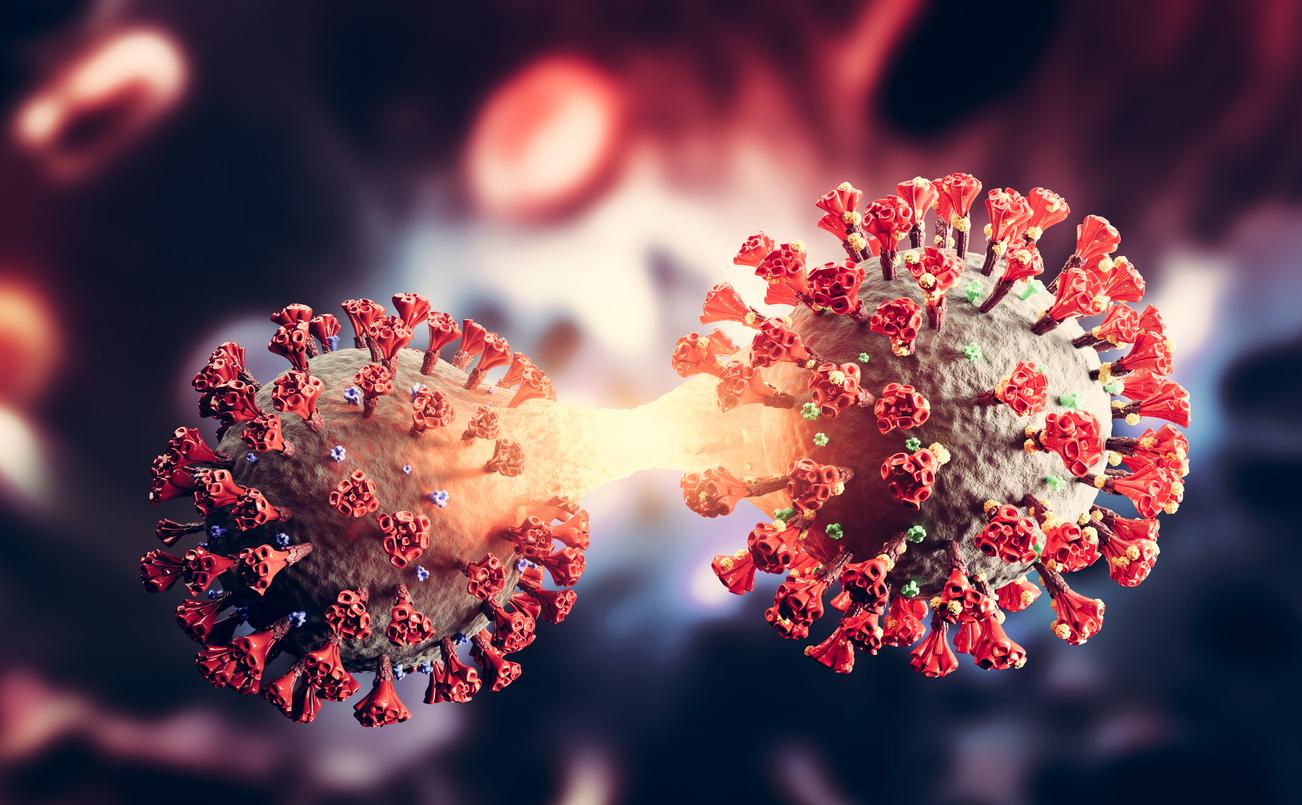While Eris is leading to an upsurge in Covid-19 cases in France, the WHO has just placed the BA.2.86 variant “under surveillance”, because it contains a large number of mutations.

- A new variant, called BA.2.86, has been detected in the United States, Denmark and Israel.
- It has been classified as “under surveillance” by the WHO.
- In France, there is a slight increase in the incidence of Covid-19.
BA.2.86 is the name of the new variant of Covid-19 that worries health authorities. It has been detected in the United States, Denmark, Israel and the United Kingdom. THE US Centers for Disease Control and Prevention (CDC) And the World Health Organization (WHO) are watching him.
Covid-19: a new variant with 36 mutations
The WHO has already classified it as “under surveillance due to the very large number (36) of Spike gene mutations he carries“. The National Institute of Health and Medical Research (Inserm) defines this Spike protein as the key that allows SARS-CoV‑2 to enter our cells. It is this gene that gives the virus its spiky appearance.
“The potential impact of BA.2.86 mutations is currently unknown and under careful evaluation“, indicate the CDC. Thus, health organizations must carry out studies to define the dangerousness, the characteristics and the resistance to the vaccine against Covid-19 of this new variant.
BA.2.86: assess vaccine resistance of the new variant
JEsse Bloom, a virologist at the Fred Hutchinson Cancer Center, estimates that BA.2.86″will evade antibodies raised by pre-Omicron and first-generation Omicron variants as much or more than XBB.1.5″can we read in a Information letter released Wednesday. “The most likely scenario is that this variant is less transmissible than current dominant variants and therefore does not spread widely.”he adds.
Currently 7 variants are monitored by global health authorities – BA.2.75 (nicknamed “Centaur”)BA.2.86, CH.1.1 (nicknamed Orthus)XBB, XBB.1.9.1, XBB.1.9.2 and XBB.2.3 – and three other mutations are qualified as “of interest” by the WHO, XBB.1.5, XBB.1.16 and EG.5 (Eris).
The discovery of this new variant comes in the context of an increase in cases linked to SARS-CoV-2 and its variants. In France, the incidence of Covid-19 shows a 60% increase from August 7 to 13, 2023 compared to the previous week. The rate rose from 7.7 to 12.3 laboratory-confirmed cases per 100,000 population. These figures remain at very low levels. Nevertheless, Public Health France recalls that the situation requires remaining vigilant.
















